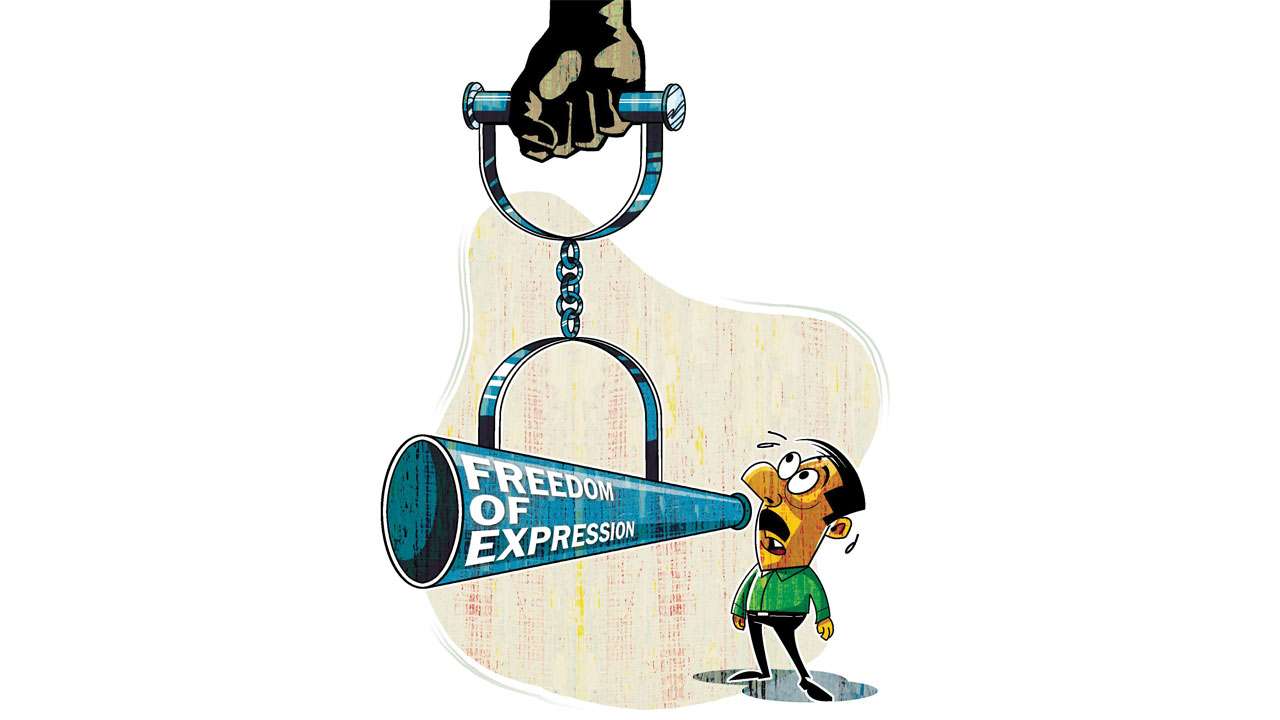
Can an ordinary citizen of this country be locked up in jail for being funny? Going by the strange case of Abhijit Mitra Iyer, the answer is a resounding "yes". This is most unfortunate, not only because Abhijit is a friend or because he is a brilliant defence analyst, but because he is known to be a law-abiding citizen, of absolutely no threat whatsoever to social or communal peace. Further, I believe he has no prior record of criminal offences, of possessing dangerous weapons, belonging to a criminal organisation or gang, or guilty of any other ground on which he may be detained. If so, why is he in the police lock-up, that too in Orissa, far away from his hometown, Delhi?
The answer is that he has been arrested under sections 153A/295A/298/34 of the Indian Penal Code (1860) and under Section 30 of the Ancient Monuments and Sites and Remains Act, 1958 (AMASR). The latter, as far as I understand its provisions, is meant to protect our monuments from vandalism. Abhijit shot a short video with the world-famous sun temple at Konark as backdrop. He did not in any way damage the monument. I see thousands of tourists and visitors taking selfies and videos all over the world. As to our heritage sites, they are often scrawled with graffiti, including the names of lovers. I have rarely heard of anyone being prosecuted, certainly never for recording a short video at one of these monuments.
So the real thrust of the FIR must be in the other aforementioned sections, 153A/295A/298/34 of the IPC. What are these sections of our law? Section 153A states that "Whoever by words, either spoken or written, or by signs…promotes or attempts to promote, on grounds of religion, race, place of birth, residence, language, caste or community …disharmony or feelings of enmity, hatred or ill-will between different religious, racial, language or regional groups or castes or communities. . . shall be punished with imprisonment which may extend to three years, or with fine, or with both."
Section 295(A) says, "Whoever, with deliberate and malicious intention of outraging the religious feelings of any class of [citizens of India]…insults or attempts to insult the religion or the religious beliefs of that class, shall be punished with imprisonment of either description for a term which may extend to [three years], or with fine, or with both." IPC 298 covers uttering words and making sounds "with deliberate intent to wound religious feelings." It is punishable by a term of up to one year and a fine or both. Finally, Section 34 of the IPC, which concerns "furtherance of common intention," possibly to target other co-accused.
The matter is in court; besides, it is pointless going into its legal niceties here. I cited the relevant sections of the IPC so that we become aware of how strict the curbs against free speech are, especially when it comes to religious or communal sentiments. What is worse, words and gestures can be deliberately distorted or misconstrued to harass or even imprison someone, especially if he or she is a soft target like Abhijit, unfortunately caught in what appears to be political crossfire. We can be reasonably sure, however, that justice will be done. I hope he will be freed, the charges against him being hard to prove.
But what about the trauma that Abhijit has been subjected to? We may consider his humour hurtful or in poor taste, but can he be imprisoned for it? In the US, President Trump himself is pilloried and reviled daily. Stand-up comedians routinely insult all ethnicities, including their own. Everyone understands that they are being funny. But in India we easily take umbrage; humour is utterly lost in translation. But wasn't the Hon. Chief Justice of India himself being funny when he was quoted, in denying Abhijit anticipatory bail, that the safest place for Abhijit was jail? Just imagine the implications of such a statement if taken even half-seriously! If citizens are safer in lock-up than outside, what is our whole justice system for? Or did My Lord imply that we have become so fanatical and chauvinistic that cracking a joke, even on a rasagulla or gulab jamun, may be life-threatening in India?
Abhijit's case should afford us an opportunity to reflect, once again, upon our legal system, even to change those laws that make citizens so vulnerable to persecution, arrest, and detention just for being perceived as offensive to some section of our populace or politicians. Not only freedom of speech and expression, but also the right of ordinary Indians to be funny, sarcastic, or ironic should be protected. Else, won't we will turn into a grim, humourless, intolerant, and hateful society?
The author is Director, Indian Institute of Advanced Study, Rashtrapati Niwas, Shimla